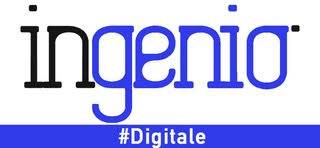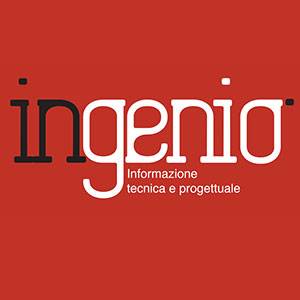European Inventor Award: per la RICERCA a un MICROCHIP per un test del DNA veloce
European Inventor Award: per la RICERCA a un MICROCHIP per un test del DNA veloce
Assegnato l'AWARD europeo per la RICERCA a un MICROCHIP per un test del DNA veloce
Il premio è stato assegnato a Christofer Toumazou (United Kingdom)
- Category: Research
- Sector: Biotechnology
- Company: DNA Electronics Ltd / Imperial College London
- Patent number: EP2129792 B1
- Invention: Microchip for quick DNA testing
Unravelling the complexities of the human genome was once an endeavour reserved for the scientific elite, but Christofer Toumazou’s invention – a USB stick that decodes a patient’s DNA within minutes – puts that unique ability at people’s fingertips.
The British scientist’s invention employs small silicon microchips that can identify genetic mutations that determine a person’s predispositions to certain hereditary diseases. These portable, low-power devices can analyse data on the spot rather than in a lab environment. As such, they represent a great stride in medicine as emphasis shifts from treating illnesses to preventing and diagnosing them in a targeted manner.
The tests take the form of a so-called “lab on a chip” – organic semiconductors and sensors that use very small amounts of chemicals to conduct tests on the spot. The chip can then be inserted into a USB stick and provide results that are viewable on a computer within 20 minutes.
Societal benefit
Not only does Christofer Toumazou’s invention make DNA testing more economical for clinics and hospitals that once had to spend upwards of half a million US dollars on conventional DNA-sequencing machines, it also provides patients with results within minutes rather than weeks. Its cost-efficiency could be particularly appealing in countries where there are few healthcare resources, such as in sub-Saharan Africa, where poorly equipped clinics could now perform diagnostic tests without the support of laboratories.
Economic benefit
The market potential for DNA sequencing is immense. By 2016, it is expected to be worth US $6.6 billion and grow by 17.5% annually – a rate that is compounded by the emergence of breakthrough technologies such as Christofer Toumazou’s cost-efficient application for testing DNA. The dynamic is fuelled by advances in bioinformatics, in imaging, in nanotechnology and in microfluidics as well as – in the case of Toumazou’s company DNA Electronics – in microelectronics.
DNA Electronics has entered in various collaborations, amongst which were Roche and Pfizer. The firm actively licenses-out its patents as its business strategy. Current licensees include Life Technologies, Roche, the National Institute for Health Research NHS, and GENEU.
Gli altri due finalisti erano:
Gene-silencing technique to treat diseases
Philippe Cinquin, Serge Cosnier, Chantal Gondran, Fabien Giroud (France)
Implantable biofuel cell that runs on glucose
About the award
Celebrating the spirit of invention
The driving force behind the innovation process is people - people with a passion for discovery. Without their inquisitive minds, their quest for new ideas and their creativity, there would be no inventive spirit and no progress. As one of the most prestigious competitions of its kind, the European Inventor Award pays tribute to the creativity of inventors the world over, who use their technical, scientific and intellectual skills to make a real contribution to technological progress and economic growth and so improve people's daily lives.
Launched by the EPO in 2006, the award gives inventors the recognition they deserve. And, like every competition, it acts as an incentive for other potential winners. It helps to protect ideas and encourage innovation.
About the trophy
Winners of the European Inventor Award are presented with a trophy in the shape of a sail. An enduring symbol of exploration and human ingenuity, the sail recalls how an inventive idea can propel humankind to uncharted shores. The trophy was conceived by German industrial designer Miriam Irle and is crafted with new materials every year, highlighting the ever-changing nature of innovation.
For 2014 the trophy has been elegantly fashioned by KPM – the Royal Porcelain Factory in Berlin – which has been designing high-quality porcelain ornaments for over 250 years. Renowned the world over, the KPM sail will provide the winners with a memorable souvenir of the Award Ceremony in Germany’s capital.
TAG: European Inventor Award, DNA, MICROCHIP

